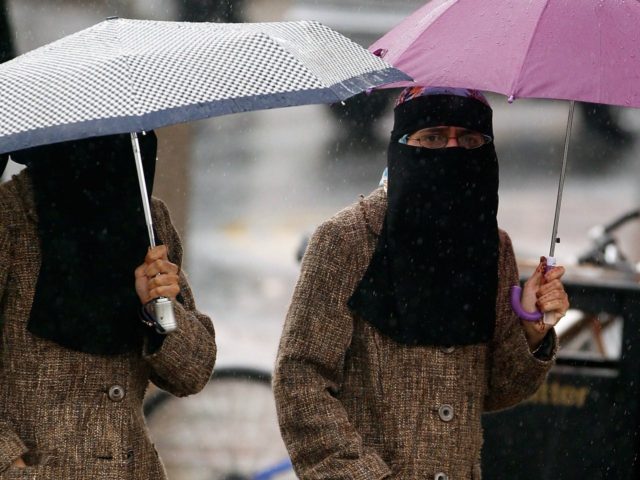The UK Independence Party (UKIP) have launched a new “integration agenda”, promising to ban the Islamic face veil and sharia law.
The pledges, aimed at tackling Islamic extremism, will be at the centre of the party’s general election campaign.
People with evidence of female genital mutilation will also be bound by law to inform police, and postal voting will be banned, according to the plans reported by the Sun.
The burqa ban would put the UK in line with France, Belgium, and Bulgaria where the garment, which covers the entire body including the face, is outlawed.
UKIP promised to ban the burqa in their 2010 manifesto, but withdrew the policy for the 2015 vote, choosing to focus on Brexit.
Party leader Paul Nuttall argued that postal voting encourages electoral fraud and said the face veil was a security risk and barrier to integration.
Announcing the agenda, Mr. Nuttall will say: “Just as we have been vindicated on the need to recognise the downsides of uncontrolled immigration and the hollowing out of our democracy brought about by EU membership, so we shall be vindicated on the need to be more robust in tackling extremism and defending British values.”
.@prwhittle on @LBC "Our society has become fragmented, multiculturalism has failed".
— UKIP (@UKIP) April 23, 2017
"There comes a point when you have to draw a line, we must integrate. We want everyone to achieve their full potential" @prwhittle on @LBC
— UKIP (@UKIP) April 23, 2017
The party’s deputy leader and culture spokesman Peter Whittle has drawn up the hard-hitting measures.
Mr. Whittle said: “We are the party that speaks up about the threat we face from Islamism from without and within, at a time when the established parties are mute either from fear, denial or sheer cowardice.”
A majority of the British public back banning the garment being outlawed, a poll published in September last year revealed.
Support is strong across the political spectrum, with a plurality of voters for every single party favoring a ban. UKIP voters were the most in favour with 84 per cent wanting to prohibit the garment, while 66 per cent of Conservative voters agreed.
Even among supporters of the left-wing Labour and Liberal Democrat parties, support for a ban is stronger than opposition, with 48 per cent of Labour voters wanting a ban, compared to 37 against, and 42 per cent of Lib Dems in favour, as opposed to 30 per cent against.

COMMENTS
Please let us know if you're having issues with commenting.